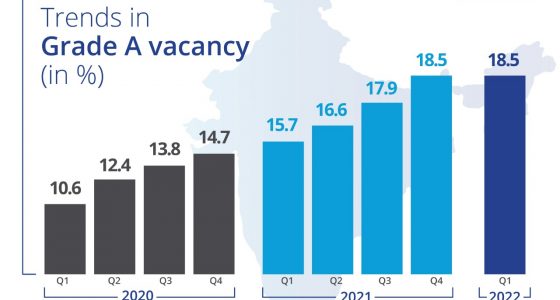New Delhi, September 2024 — As India grapples with the challenges of climate change and environmental sustainability, a significant shift is occurring in the construction and real estate sectors. There is an increasing emphasis on sustainable and green building practices, with more real estate projects actively seeking certifications from prominent organizations such as the Indian Green Building Council (IGBC) and Leadership in Energy and Environmental Design (LEED). This trend reflects a broader commitment to environmentally friendly construction and energy efficiency.
Growing Demand for Green Building Certifications
Scope of the Trend: Green building certifications are becoming a standard expectation rather than an exception in India’s real estate market. These certifications, provided by IGBC and LEED, signify that a building meets rigorous standards for energy efficiency, sustainability, and environmental performance.
Indian Green Building Council (IGBC): The IGBC, a part of the Confederation of Indian Industry (CII), offers various certification programs tailored to different types of buildings, including residential, commercial, and industrial structures. IGBC certifications are designed to promote sustainable building practices and help builders achieve higher environmental performance.
Leadership in Energy and Environmental Design (LEED): LEED, a globally recognized green building certification system developed by the U.S. Green Building Council (USGBC), evaluates buildings based on their sustainability, energy efficiency, and environmental impact. LEED certifications are highly sought after by developers aiming to showcase their commitment to green building standards on an international scale.
Why the Shift Towards Green Building?
Environmental and Climate Considerations: The increasing frequency of extreme weather events and rising concerns about climate change are driving the demand for green building practices. By incorporating energy-efficient technologies and sustainable materials, green buildings contribute to reducing carbon footprints and minimizing environmental impacts.
Regulatory Pressures: Government regulations and policies are increasingly favoring sustainable construction. Incentives and mandates for green building practices are being introduced to encourage developers to adopt environmentally friendly practices. This includes benefits such as tax breaks and faster approval processes for certified buildings.
Market Demand: There is a growing preference among investors and consumers for environmentally responsible and energy-efficient buildings. As awareness of environmental issues increases, potential buyers and tenants are increasingly seeking properties that offer sustainable features and lower utility costs.
Notable Examples of Green Building Projects
**1. *Lodha Bellissimo, Mumbai*: This luxury residential development has achieved IGBC Platinum certification, showcasing its commitment to energy efficiency, water conservation, and sustainable building practices. The project includes features such as rainwater harvesting systems, energy-efficient lighting, and green roofs.
**2. *Infosys Campus, Bangalore*: Infosys, a major IT company, has several campuses across India that are LEED certified. The company’s Bangalore campus, which has achieved LEED Platinum certification, is renowned for its energy-efficient design, use of renewable energy sources, and comprehensive waste management systems.
**3. *Cognizant Technology Solutions, Chennai*: Cognizant’s office building in Chennai has been awarded LEED Gold certification. The building incorporates sustainable practices such as efficient HVAC systems, water-saving fixtures, and materials with low environmental impact.
**4. *Dhirubhai Ambani International School, Mumbai*: This educational institution has earned IGBC Green School certification for its emphasis on sustainable building practices and environmental education. Features include energy-efficient lighting, rainwater harvesting, and extensive use of natural light.
Also Read: Surge in Green Office Spaces: Bengaluru and Mumbai Lead as Demand Soars in H1 2024
The Future of Green Building in India
Source: According to a recent report by the Indian Green Building Council (IGBC), the number of green buildings in India has seen a substantial increase over the past decade. The IGBC estimates that over 5,000 buildings across the country have achieved some form of green certification.
Conclusion: The rise in green building certifications in India reflects a significant shift towards more sustainable and environmentally conscious construction practices. As more developers and real estate projects seek IGBC and LEED certifications, the Indian real estate sector is set to play a crucial role in addressing environmental challenges and promoting energy-efficient building practices. This trend not only benefits the environment but also aligns with the growing market demand for sustainable and energy-efficient properties.









